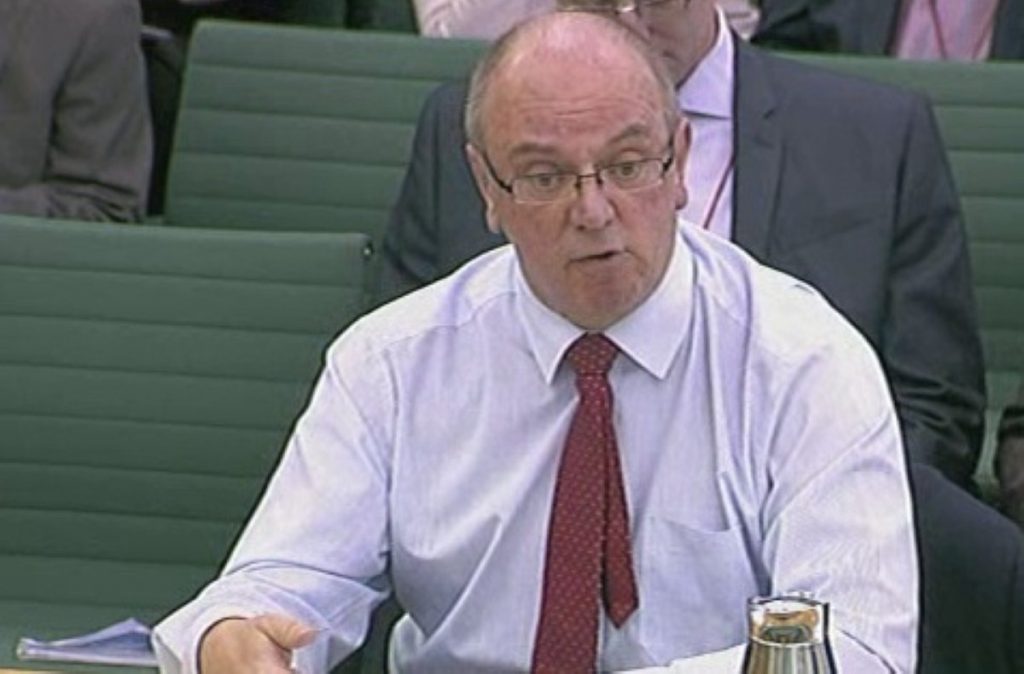NHS chief blames the politicians for Mid-Staffs tragedy
The man held responsible for the unnecessary deaths of thousands of patients across the NHS has blamed politicians for their demise.
Sir David Nicholson, the current chair of the NHS commissioning board, told MPs on the Commons' health committee "the system that failed was the one designed in 2005", before blaming successive upheavals of the health service for the problems experienced on the ground.
Nicholson insisted the written evidence he had submitted to the committee contained an apology, but struggled to find it in the session.
He refused to accept personal accountability for the whole of the NHS, despite calls from patients' organisations and a growing number of MPs for him to resign.


"Part of the issue is people see the NHS as an organisation, when it actually isn't. It's a healthcare system," Nicholson said.
"The system is built up to make that accountability at hospital level. The primacy for accountability at Stafford hospital was that particular hospital. Those individuals were held to account."
When questioned further on accountability by Lib Dem NHS rebel Andrew George, who suggested Nicholson's comments implied he was blaming a "political decision", he again cited the shift to a patient-led NHS begun by Labour in 2005.
"If you look at the organisation of the NHS at that time, what you see is reorganisation on top of reorganisation on top of reorganisation," he said.
"What you get out of that is a confusion about accountabilities and who's responsible for what.
"The people who designed it in 2005 were not trying to create a confused situation, but when you added it to the changes which had happened in the last ten years… the organisations were not capable or had the capacity to make the changes."
George suggested that "a management culture which seems to be practised in the arts of management babble has been created which heaps unrealistic pressure on the frontline, and yet at certain tiers of management a blind eye is turned to the consequences of the unrealistic pressures which are placed on that front line".
Nicholson replied: "I have seen parts of the NHS where that has been the case, but I have seen great swathes of the NHS where that is simply not the case."
Nicholson was chief executive of the West Midlands Strategic Health Authority at the time of the 1,200 unnecessary deaths in Mid-Staffordshire – a position campaigners repeatedly mention when calling for him to quit.
He insisted he was only accountable for a limited number of issues, like limiting the spread of infectious diseases like MRSA and C-difficile, but again blamed the system.
"That was a big failing in the whole system. I was in that system. I was part of it," he said.
Conservative backbencher Charlotte Leslie is leading calls from the government benches for Nicholson to quit over failings at the NHS. Her early day motion now has the support of 15 Tory MPs.
But he has been defended by the prime minister, who has backed the Francis inquiry into Mid-Staffordshire's conclusion there should be no individual "scapegoats".
Leslie's article in the Telegraph today calls for broader reforms of a system which, she says, Nicholson once boasted he had "Stalin-like" control over.
She wrote: "The Mid Staffs scandal, and the problems throughout the NHS that it has exposed, have one thing in common: Lives lost in our hospitals because of an unaccountable central management and political organisation, more concerned with fixing the statistics for dispatch-box convenience than looking after patients, which has systematically stifled of the voices of those on the front line: both patients' groups concerned for loved ones, and doctors and nurses concerned for their patients.
"If we are to eradicate this almost soviet control over our health care system, we must empower those with front-line experience to speak out, and drive our NHS, with clear accountability and transparency."









